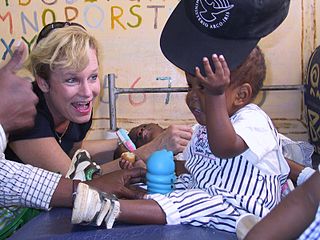A Quote by Philip K. Dick
but as he plodded along a vague and almost hallucinatory pall hazed over his mind; he found himself at one point, with no notion of how it could be, a step from an almost certain fatal cliffside fall—falling humiliatingly and helplessly, he thought; on and on, with no one even to witness it. Here there existed no one to record his or anyone else's degradation, and any courage or pride which might manifest itself here at the end would go unmarked: the dead stones, the dust-stricken weeds dry and dying, perceived nothing, recollected nothing, about him or themselves.
Quote Topics
About
Almost
Along
Any
Anyone
Anyone Else
Certain
Could
Courage
Dead
Degradation
Dry
Dust
Dying
Else
End
Even
Existed
Fall
Falling
Fatal
Found
Go
Him
Himself
His
How
Itself
Manifest
Might
Mind
Nothing
Notion
Over
Perceived
Point
Pride
Record
Step
Stones
Themselves
Thought
Vague
Weeds
Which
Witness
Would
Related Quotes
His head was swimming, and he was far from certain even of the direction they had been going in when he had his fall. He guessed as well as he could, and crawled along for a good way, till suddenly his hand met what felt like a tiny ring of cold metal lying on the floor of the tunnel. It was a turning point in his career, but he did not know it. He put the ring in his pocket almost without thinking; certainly it did not seem of any particular use at the moment.
Love is very important in The First Man, in that [Albert] Camus loves these things he never chose, he loves his childhood experience in a very real way. Their poverty meant that there was nothing else they could think about but what they would eat, how they would clothe themselves. There's just no room for other things in his family. It's difficult for others to imagine the position in which he found himself. There is no imaginary existence in their lives.
Then why are you crying?” “Because of you!” I beat my fists on his chest. “Because I love you, and I don’t know what to do! I can solve almost any problem, but I can’t solve this. I don’t know how to deal with that. And I’m afraid! Afraid for you! Do you know what it’d do to me if something happens to you?” I stopped hitting him and clasped my hands over my own chest, as though there was a danger my heart might fall out. “This! This would break. Shatter. Crumble. Crumble until it was dust.” I dropped my hands. “Blown away on the wind until there was nothing left.
I could tell by his expression that once he got over his anger at me for keeping this secret from him, there was nothing left to talk about. He wasn't confused. He didn't need questions answered. He didn't ask why or how or with whom or whether I thought maybe it might just be a phase. He didn't ask who knew and who didn't know or whether I thought it might ruin my career. I was his sister and he didn't care whether I was straight or gay; it simply didn't matter to him.
In the end, therefore, money will be the one thing people will desire, which is moreover only representative, an abstraction. Nowadays a young man hardly envies anyone his gifts, his art, the love of a beautiful girl, or his fame; he only envies him his money. Give me money, he will say, and I am saved...He would die with nothing to reproach himself with, and under the impression that if only he had had the money he might really have lived and might even have achieved something great.
Any piece of knowledge which the pupil has himself acquired- any problem which he has himself solved, becomes, by virtue of the conquest, much more thoroughly his than it could else be. The preliminary activity of mind which his success implies, the concentration of thought necessary to it, and the excitement consequent on his triumph, conspire to register the facts in his memory in a way that no mere information heard from a teacher, or read in a schoolbook, can be registered.
Timing is everything. Tell me how a young man spends his evenings and I will tell you how far he is likely to go in the world. The popular notion is that a youth's progress depends upon how he acts during his working hours. It doesn't. It depends far more upon how he utilizes his leisure...If he spends it in harmless idleness, he is likely to be kept on the payroll, but that will be about all. If he diligently utilizes his own time...to fit himself for more responsible duties, then the greater responsibilities - and greater rewards - are almost certain to come to him.
Spend your time in nothing which you know must be repented of; in nothing on which you might not pray for the blessing of God; in nothing which you could not review with a quiet conscience on your dying bed; in nothing which you might not safely and properly be found doing if death should surprise you in the act.
I'm serious, Harry, don't go." But Harry only had one thought in his head, which was to get back in front of the mirror, and Ron wasn't going to stop him. That third night he found his way more quickly than before. He was walking so fast he knew he was making more noise than was wise, but he didn't meet anyone. And there were his mother and father smiling at him again, and one of his grandfathers nodding happily. Harry sank down to sit on the floor in front of the mirror. There was nothing to stop him from staying here all night with his family. Nothing at all.
Witness the witness itself - and... the ultimate ecstasy is created. Start watching your thoughts but don't stop there... One more thing has to be done, one more step: now watch the watcher... Nothing else is left, only you are. By watching the mind, the mind disappears. By watching the witness, the witness expands and becomes universal.
He knew something was going to happen and his entire system was waiting on it. He thought it was going to be one of the supreme moments in life but apart from that, he didn't have the vaguest notion what it might be. He pictured himself, after it was over, as an entirely new man, with an even better personality than he had now. He sat there for about fifteen minutes and nothing happened.
Was his life nothing? Had he nothing to show, no work? He did not count his work, anyone could have done it. What had he known, but the long, marital embrace with his wife. Curious, that this was what his life amounted to! At any rate, it was something, it was eternal. He would say so to anybody, and be proud of it. He lay with his wife in his arms, and she was still his fulfillment, just the same as ever. And that was the be-all and the end-all. Yes, and he was proud of it.
There is not a manufacturer or tradesman in existence, who would not employ a man who takes a reasonable degree of pride in the appearance of himself and those about him, in preference to a sullen, slovenly fellow, who works doggedly on, regardless of his own clothing and that of his wife and children, and seeming to take pleasure or pride in nothing.
But God's love is big enough to touch any life, to make light out of any darkness. Jesus came that we might have life, so that no more would we have to die in depression, anger or pain. He loved people back to life. He would go anywhere, talk to anyone. And wherever He went, He would stop for the one-- the forgotten one, the one who was rejected, outcast, sick, even stone dead. Even a thief who was dying for his crimes on the cross next to Him. In the Kingdom of God's love there is no sinner who cannot come home.
Here is The Boy with the Thorn in His Side, dying in your world. A man made monster with every human emotion, overdosed on worthlessness in a world that could never wrap it’s head around him (so don’t even try). When it’s all over just remember every single word you ever said was always just a bullet to his head. Bury him underground between friends and love - the only things that are gonna make it to the end with him. Look for his body buried beneath where the yellow weeds are growing and know he’s still living in his nightmares.






































